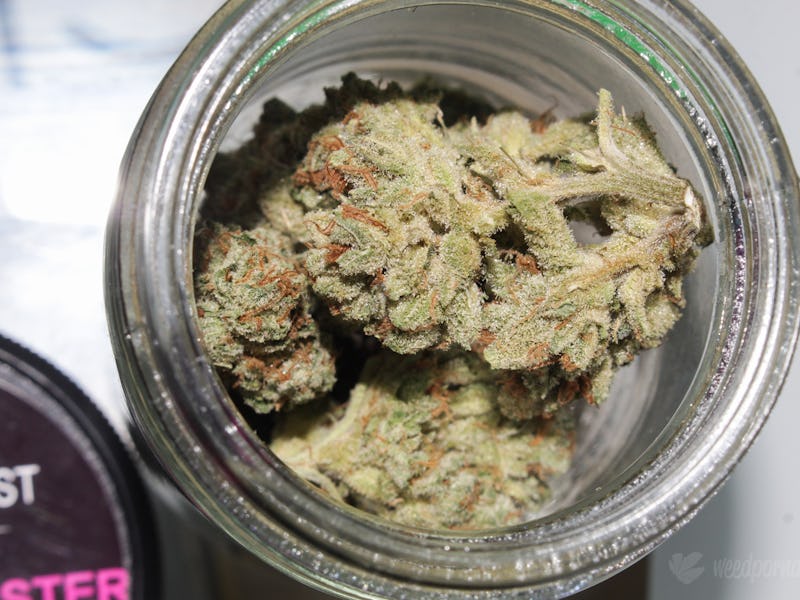Marijuana Policy Researchers Offer Optimistic News About the Opioid Crisis
Legalization appears to have very positive effects.

Can medical marijuana laws lessen the burden of the opioid crisis in the United States? That’s the million-dollar question — or more accurately, the $10 billion-dollar question. Legalization advocates have long argued that legalizing marijuana could help people with opioid addiction or chronic pain issues, and on Thursday, the U.S. Centers for Disease Control and Prevention announced a troubling trend in opioid overdose deaths. On Monday, two large studies offered new scientific evidence to inform the legalization discussion.
In a pair of studies published in JAMA Internal Medicine, researchers show that medical marijuana legalization could be an effective policy tool to aid in the fight against the rapid rise in opioid deaths. In one study, Hefei Wen, Ph.D. and Jason Hockenberry, Ph.D. showed that states with legal medical marijuana had a modest decrease in the number of Medicaid enrollees who received opioid prescriptions. In the other study, a team led by Ashley Bradford of the University of Georgia’s Department of Public Policy showed that Medicare Part D recipients in states with medical marijuana laws filled significantly fewer opioid prescriptions. This difference was even greater in states with dispensaries than in states where patients have to grow their own pot.
Researchers found that medical marijuana laws may help lessen the negative effects of the opioid crisis.
A long-standing argument against marijuana legalization is that marijuana is a “gateway drug” that can lead users to more dangerous drugs like heroin. But these studies suggest the opposite: that marijuana may help people using dangerous opioids use less of them. And while states with medical marijuana laws showed an improvement in opioid prescription numbers, the effect was even greater in places with recreational marijuana laws. By analyzing Medicaid data from 2011 to 2016, Wen and Hockenberry found that states with medical and recreational marijuana showed opioid prescription decreases of 5.88 percent and 6.38 percent, respectively.
The team led by Bradford found a similar effect in their study. Their data show that in states with marijuana dispensaries, Medicare Part D enrollees filled 3.742 million fewer daily doses of opioids. This effect was smaller in states with medical marijuana laws that only allow home cultivation, but it was still present: In those states, people filled 1.792 million fewer daily opioid doses.
The CDC’s latest numbers show that 40,000 people died from opioid overdoses in the U.S. in 2016, so any policy solutions that could lighten the public health burden of the opioid crisis should be considered. Even though some doctors say it’s too soon to say for sure that marijuana legalization could help stem the tide, the mounting evidence suggests that the effects of marijuana legalization are beneficial for public health.
Since the two new studies are not experimental, it’s hard to tell the exact relationship between marijuana legalization and decreased opioid use. For any policy decisions to be made, further studies will have to show whether the relationship is a causative one.
In an invited commentary on the two studies for JAMA Internal Medicine, two doctors write that cannabis science often lags behind the policy, and for policies to advance, the profits from the marijuana industry need to be taxed to support further research to give us clear answers. Otherwise, we’re just speculating and basing important decisions on correlations.
“Many companies and states (via taxes) are profiting from the cannabis industry while failing to support research at the level necessary to advance the science,” they write. “This situation has to change to get definitive answers on the possible role for cannabis in the opioid crisis, as well as the other potential harms and benefits of legalizing cannabis.”